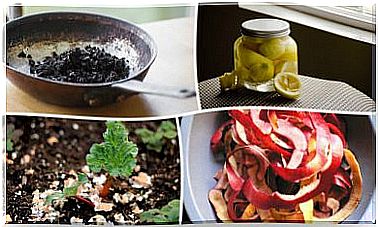How To Treat Respiratory Diseases With Natural Remedies
The diseases that affect our respiratory system are numerous and very frequent. You can prevent its appearance by adopting a series of measures and using natural remedies based on medicinal plants. If you already suffer from this type of disease, they can help you alleviate the symptoms.

Respiratory diseases affect the nasal passages, bronchial tubes, and lungs. They range from acute infections such as pneumonia, bronchitis and the common cold. Chronic diseases such as asthma and chronic obstructive disease (COPD) are also included.
The most important risk factors for respiratory diseases are the following:
- To smoke.
- Air pollution in closed spaces.
- Exposure to allergens.
- Environmental pollution.
- Inhalation of dust or chemicals in the workplace.
- Family history of asthma or allergies.
The most common symptoms that can appear in respiratory diseases are cough, shortness of breath and respiratory secretions.
These symptoms occur with varying intensity from one person to another. In addition, symptoms also vary depending on the disease in question, the degree of severity and the time of evolution.

How to prevent respiratory diseases
When it comes to preventing the development of respiratory diseases , some measures can be taken such as not smoking and avoiding passive exposure to tobacco smoke. Appropriate measures should also be used in the work environment to avoid exposure to dusts and chemicals.
Preventive measures help reduce symptoms and complications once respiratory diseases are already installed.
In case of persistent symptoms such as coughing, wheezing in the chest or shortness of breath, you should consult a specialist. With proper treatment, you can prevent the disease from progressing.
There are a good number of medicinal plants to alleviate the symptoms of respiratory diseases, below we will tell you the properties and how to use some of them.
Plants to help relieve respiratory diseases
Plants that help the respiratory system generally provide one or more of the following benefits:
- They can function as an expectorant.
- They improve nasal congestion and clear the airways.
- They calm the cough.
- They reduce irritation.
- Antioxidant action.
- They fight against harmful organisms.
1. Eucalyptus
Eucalyptus is one of the plants that helps you breathe better, it has expectorant, antimicrobial and anti-inflammatory properties. By reducing inflammation it facilitates breathing.
Regarding its antimicrobial capacity, with its use it is possible to eliminate those microorganisms that cause infectious processes in the respiratory tract such as bronchitis, sinusitis and colds.
Its expectorant properties come from the leaves. They are fragrant and rich in an essential oil whose main component is eucalyptol. This component is a powerful mucolytic that fluidizes pulmonary secretions. In turn, it is antitussive and an inhibitor of bronchial irritation.
2. Oregano
Although oregano contains vitamins and nutrients necessary for our immune system. Its main benefits are due to its content in carvacrol and rosmarinic acid. Both have a decongestant effect, which is beneficial in case of respiratory diseases.
3. Lobelia
This plant is one of the most valuable remedies that exist. It contains an alkaloid called lobeline, which reduces mucus and relieves congestion. In addition, it stimulates the adrenal glands to release epinephrine, which clears the airways.

4. Onion
Its properties help the dissolution and expectoration of phlegm, as well as clearing the airways. You can prepare an infusion by placing two onions in pieces in a liter of water, boil for 15 minutes and add sugar to taste.
5. Echinacea
Studies show that echinacea boosts the immune system and helps ward off the common cold and flu.
In addition, it is capable of reducing respiratory tract infections by 10 to 20%. It can be consumed in tablets, drops or as an infusion.
The main active components of echinacea that boost our immune system are antioxidants, alkamides and polysaccharides. It can be used in the form of tablets, drops or infusions.
6. Ivy
The ivy leaf has anti-inflammatory properties, especially at the bronchial level. In addition, due to its composition, it has vasoconstrictive, anticoagulant, expectorant and antibiotic properties.
It is used in the treatment of upper respiratory tract colds, chronic bronchitis and a rebellious cough with vomiting. The most common way to take it is in syrup and drops.









